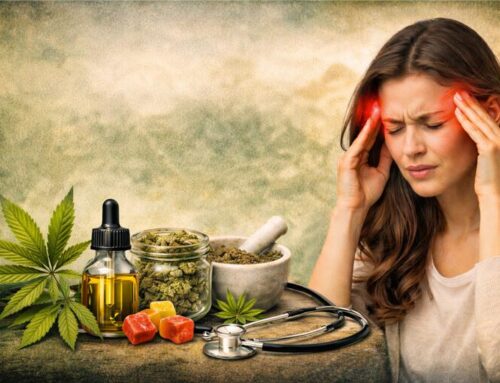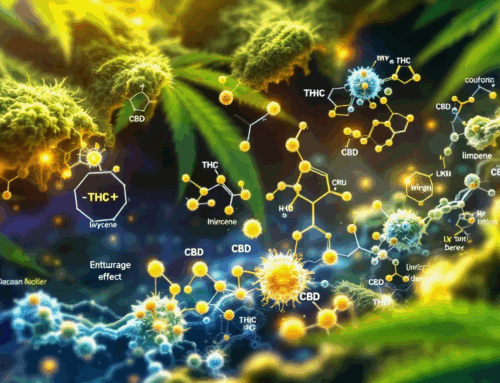Over the past few years, the legality and the use of cannabis have seen increased acceptance and legalization across nations. But with growing popularity come myths about medical marijuana. These myths are often fueled by outdated information, social stigma, and fear-mongering campaigns. As more people seek a medical marijuana card for conditions ranging from chronic pain to anxiety, it becomes even more important to separate fact from fiction. Many of these myths also stem from confusion around evolving medical marijuana laws, which vary widely by state and country. Fortunately, so many of these concepts are being challenged and debunked, as there is an exponential amount of research and scientific evidence. In this article, we are breaking down the top 10 myths about medical marijuana that remain widely believed in 2025.
Myth 1: Cannabis is a Gateway Drug
One of cannabis’ most common myths is that it leads to harder drugs. Most people believe that if they use medical marijuana, they will then be compelled to use drugs like cocaine or heroin. It’s been used against pot legalization for years.
However, studies have shown that cannabis doesn’t cause people to use other drugs. Some cannabis: the National Institute on Drug Abuse published a 2024 study that concluded more medicines to try different medicines, but this wasn’t because cannabis caused them to do so. Many turn to other substances for a number of mental health issues and due to their own individual circumstances.
Moreover, using cannabis has some pretty cool harm-reduction perks. A lot of people choose medical marijuana instead of riskier options like alcohol or prescription pain meds. It can also help with chronic pain, stress, sleeping disorders, and anxiety, making it a safer choice for some people.
Myth 2: Cannabis Impairs Intelligence and Motivation
One of the myths about cannabis users is that they are somehow less intelligent and lazier and less ambitious than non-users. Long-term use of cannabis during adolescence can interfere with brain development, a 2024 NIDA study showed, but responsible adult use of cannabis was found not to produce lasting cognitive problems. In fact, cannabis increases motivation and improves the quality of life for some patients suffering from chronic pain, stress, or anxiety. The myth of “a motivational syndrome” has been dispelled, with many users speaking of how they become more focused after using marijuana and more likely to finish tasks, particularly with CBD-rich strains. The current research does not support the idea that cannabis makes you lazy or stupid.
Myth 3: Cannabis Overdose Is Impossible
Most people in the past believed that an overdose of medical marijuana or cannabis products was impossible, as it is a natural medication. Still, this is just a myth relating to its use. Although it is not as toxic as many other drugs, consuming cannabis in high doses can cause many health problems and effects, such as anxiety, dizziness, nausea, disorientation, and paranoia. Even though these impacts are, for the most part, non-fatal, no deaths have ever been officially recorded because of overdosing on cannabis.
Myth 4: CBD Offers No Real Benefits
CBD, the complete form of cannabidiol, is a compound found in medical marijuana with non-psychoactive properties that has been gaining popularity due to its potential health benefits. Research increasingly confirms its role in reducing anxiety, chronic pain, and insomnia and its anti-inflammatory effects for arthritis. Not only that, but some research shows that it can help with cancer and HIV/AIDS. Though more research is going on every day to find out more about medical cannabis’s effects, studies completed so far show adverse therapeutic relief and improvement in life quality for patients suffering from chronic ailments.
Myth 5: Legalization Would Create a Nation of Cannabis Users
Those against the legalization of cannabis argue that it would result in social problems and widespread addiction; they claim people would become addicted. However, studies from Canada and California show that while cannabis usage does increase slightly after legalization, it does not escalate widespread addictive behavior. Legalization reduces the stigma around cannabis, encouraging its responsible use and enabling regulation that provides consumers with safe, quality products while lowering illegal trade.
Myth 6: Cannabis Strains Are Indistinguishable
Not all cannabis is the same. Different kinds can make you feel different ways about things. Cannabis can give you energy and make you feel happy. Cannabis indica can help you relax. There are also mixes of both.
Cannabis has unique parts called THC and CBD, which can change how it works. These parts work together to change your experience. Choosing the right kind of cannabis is essential for helping with pain, relaxation, or focus.
Myth 7: Cannabis Use Always Leads to Addiction
Many people think that using alcohol will always lead to addiction, but that’s not true. Most people who use cannabis do not get addicted. Some people might, but they usually use it a lot or have other problems.
Addiction can happen when someone uses too much cannabis and has issues like mental health problems. But most users are fine. It’s essential to use cannabis carefully to stay safe and avoid addiction.
Myth 8: Cannabis is the Same as Smoking Cigarettes
Putting cannabis and cigarettes in the same category is a misconception some people have. While both might involve smoking and inhaling, they are pretty different. The most severe health risks of cigarettes stem from nicotine, tar, and carbon monoxide, which damage the lungs and increase the chances of some form of cancer developing.
Cannabis, on the other hand, is used as medicine and has other medical purposes because it contains cannabinoids. While smoking hemp cannabis offends the lungs, it does so to a lesser extent than cigarettes. Cannabis is not restricted only to smoking; it can also be consumed in the form of edibles and tinctures or even vaped.
Myth 9: Cannabis Has No Medical Uses
There are many people who think that cannabis has no medical uses and it is just only to get high and have fun, but that’s not true at all. Cannabis has been used to help people with cancer, anxiety, chronic illnesses, HIV/AIDS, and many other health conditions. Where traditional medications fail to help those patients, medical marijuana shows excellent results in improving their health and life.
Doctors who are licensed to provide medical marijuana can allow patients to use cannabis to get help with pain, worry, sadness, and trouble sleeping. It can also help with many diseases. As more people learn about its benefits, cannabis is being seen as a good way to help with health problems.
Myth 10: Cannabis Use Will Always Get You in Trouble
There are also some myths about the legal trouble around medical marijuana, such as some people still believing that if they use cannabis for medical purposes, they can get in legal trouble. While this was true in the past, many places have now legalized cannabis, either for medical or recreational use. In states such as Mississippi, North Dakota, and now also Kentucky, it is totally legal to use medical marijuana; the use of cannabis is no different from using other traditional medications and products, like alcohol or tobacco.
However, in states where cannabis is legal, you must obtain a medical marijuana card from your state health department. Without a medical marijuana card, you can not use cannabis for any problems. Legalization has also helped reduce the stigma around cannabis use and made it easier for people to access it safely.
Conclusion
People have many misunderstandings about cannabis. By 2025, some of these wrong myths will be old and not based on facts. Research shows that cannabis can be good for health when used carefully. It’s essential to know the correct information about cannabis so we can make smart choices about using it for medicine. As we learn more and more people accept it, more people will understand how cannabis can help.
FAQs
How can I get a Medical Marijuana Card in Clinton for ulcerative colitis?
To obtain a Medical Marijuana Card in Clinton, you need a recommendation from a certified medical marijuana doctor and must complete your state’s registration process. Patients with ulcerative colitis may qualify due to chronic inflammation and pain. Always ensure you apply through a legal and verified provider like Ezmedcard for a safe and compliant process.
What medical marijuana laws should I know if I have ulcerative colitis?
Medical marijuana laws vary by state, but many allow its use for conditions like ulcerative colitis under medical supervision. It’s important to follow state-specific regulations, including possession limits, approved conditions, and registration requirements. Always consult a qualified physician to understand how local laws apply to your condition.
Can I buy cannabis for UC symptoms at local dispensaries?
Yes, with a valid medical marijuana card, you can legally purchase cannabis from cannabis dispensaries in your state. These dispensaries offer a variety of strains and products tailored to reduce inflammation and manage pain associated with ulcerative colitis. Always choose licensed dispensaries for quality and compliance.
Is medical marijuana effective for other autoimmune diseases besides ulcerative colitis?
Yes, medical marijuana for autoimmune diseases like rheumatoid arthritis and multiple sclerosis is increasingly being researched. Its anti-inflammatory and pain-relieving effects may help manage symptoms across various autoimmune conditions, including ulcerative colitis. Speak with your doctor about whether cannabis is a suitable treatment option for your specific condition.
What about medical marijuana for Irritable Bowel Syndrome (IBS)?
While IBS and ulcerative colitis differ, medical marijuana for irritable bowel syndrome is also being studied for its potential to reduce abdominal discomfort, regulate bowel movements, and decrease gut inflammation. Both conditions affect digestive health, and cannabis may offer symptom relief when traditional medications are not effective.





